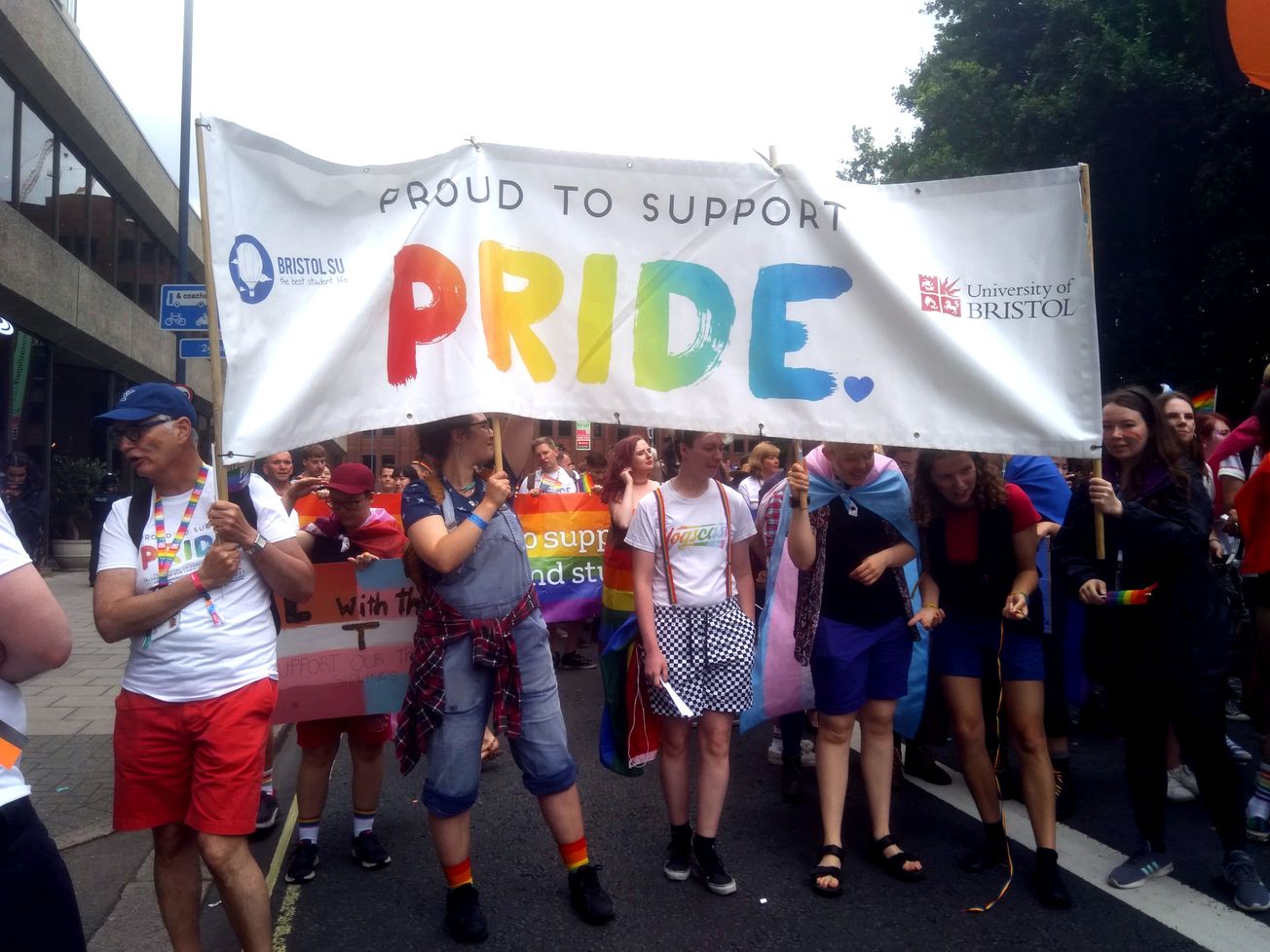By Ellie Brown, News, Opinion, and Features Subeditor
Students and staff at the University of Bristol formed a significant part of the success of the city's Pride celebrations. Epigram talked to a few of those present about their thoughts on the event and what needs to happen for the campus to be more LGBT+ friendly.
An estimated 18,000 people walked in Bristol’s Pride march on 13 July, of which the University of Bristol and Bristol SU were lead sponsors. This year was particularly noteworthy as the 50th Anniversary of the Stonewall riots, which sparked a worldwide movement for LGBT+ rights, as well as the tenth anniversary of the event in Bristol.
Staff, students and alumni walked the route together, many wearing their rainbow-themed University lanyards, before taking a shuttle bus from the City Centre to the festival on the Downs. Here, the University ran a stall promoting LGBT+ research in the Communities Tent, whilst students and staff enjoyed a variety of entertainment at the festival, including Dance and Cabaret Stages, a Circus Tent, and a Main Stage where singers such as Sophie Ellis-Bextor performed. According to the organisers it was ‘a chance for all LGBT+ people, their friends, families and allies to stand up and declare they are proud of who they are and their loved ones’.
Bristol Pride 2019Around 18,000 people marched through Bristol to celebrate sexual and gender diversity 🏳️🌈🏳️🌈
Posted by Epigram on Saturday, 13 July 2019
Dr Simon Gamble, Pride Rep for the University of Bristol Staff LGBT+ Network, said: ‘Once again it was brilliant to see so many students and staff from the LGBT+ networks, senior management and University staff come together, both at the march and the main event at this year's Pride.
‘Members of the staff LGBT+ Network volunteer so much of their own time to make this and lots of other events around the year a success. As volunteers we feel it's essential to be visible within the University and outside, in order to push for an increasingly supportive environment for LGBT+ staff and students.’
‘The Network won a Bristol Diversity Award this year and an award for our presence at Pride last year.’
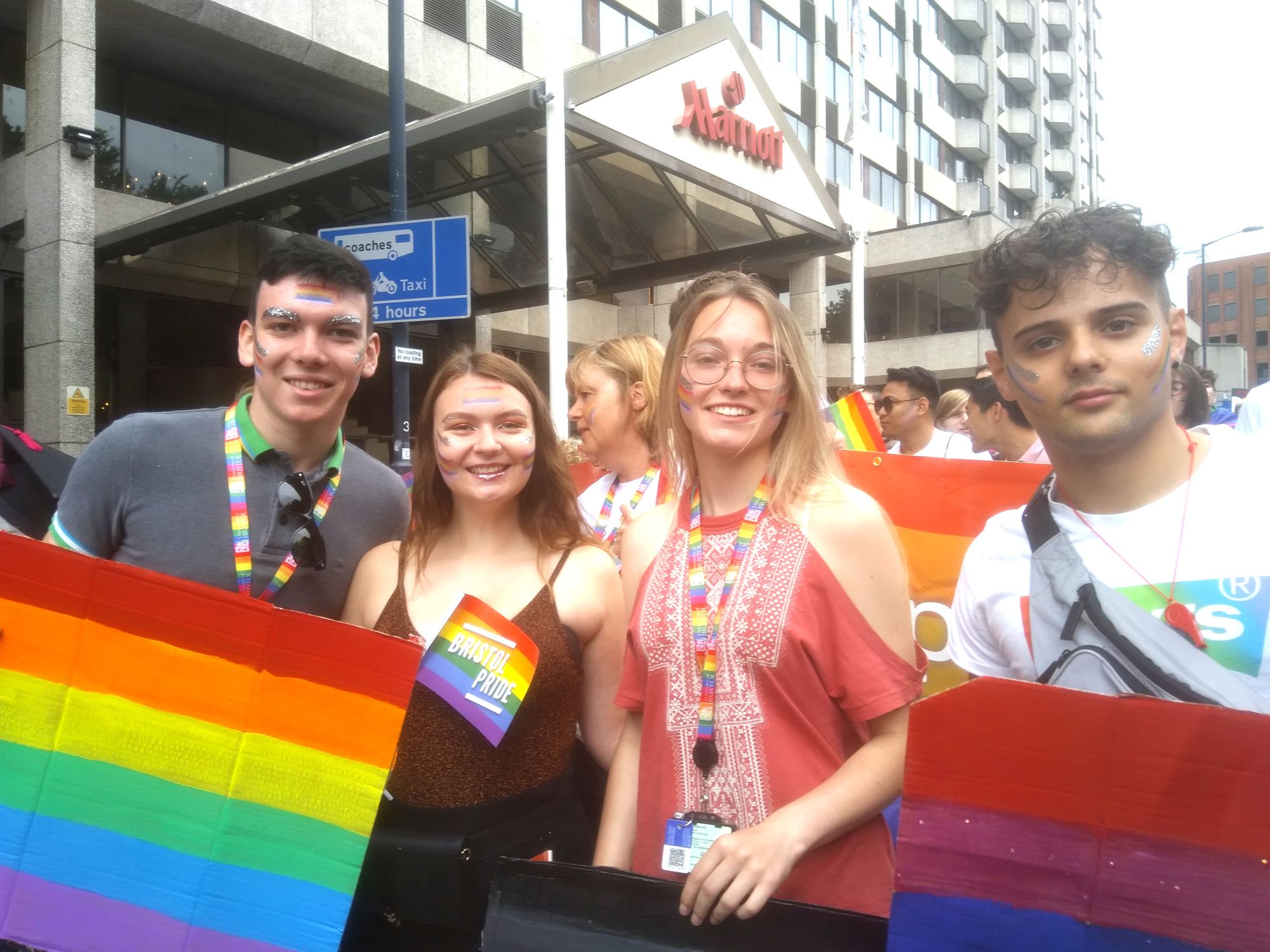
Epigram talked in-depth to some LGBT+ identifying students and SU staff who also attended the day.
‘It was my first march and I absolutely loved it,’ said Roisin Jacobson, a third year Sociology student at the University. She praised the march and festival for being ‘very well organised’ with the march being especially significant.
‘Unlike most oppressed communities, LGBT+ people are largely invisible. We're forced into hiding by prejudice and fear. The march is the opposite of that. We completely refuse to be silent. The first Pride was a riot and a protest, so it's important to continue that fight against bigotry.’
Jason Palmer, Bristol SU Equality, Diversity, and Liberation Officer, said: ‘I couldn't have thought of spending my first Pride in a better way. There was an incredible feeling of community and allyship from so many people from so many walks of life.’
He also highlighted the march’s political importance. ‘As much of a celebration as it was, we mustn't forget that pride is also a protest for LGBT+ people here and abroad who face institutionalised and social discrimination.’
Get your rainbow flags ready, your banners held up and prepare for this year's Bristol Pride Parade on Saturday!
— Bristol SU (@Bristol_SU) July 11, 2019
Meet other @BristolUni students and staff at Castle Park from 10am, departing at 10:45. Remember your rainbow lanyards 🌈 pic.twitter.com/x8S5Tq1BRD
Both Roisin and Jason also welcomed the involvement of the University.
‘I think the uni showed great commitment to LGBT+ rights by sponsoring the march,’ Roisin said. For Jason, it is ‘symbolically important in that it signalled allyship with the LGBT+ university community and shows a recognition that the experiences of LGBT+ students matter.’
‘It was great to see LGBT+ staff and students marching alongside each other,’ he said. 'The LGBT+ Society and Network [deserve praise], as well as other groups [for doing] an incredible job of creating a welcoming environment for LGBT+ students and organising independent Pride activities for their members.’
However, some aspects of the day were less positive. ‘It was very big so it was difficult to find people or know where to go,’ said Daisy Riley, a third year English student.
While for her ‘that can’t possibly be a criticism because it’s so great that it’s such a massive thing’, Roisin noted that this reduced accessibility of the event as ‘there might not be space for introverted LGBTQ+ people or those who can't handle loud noise’.
‘The march isn’t totally safe. There are often religious homophobes protesting at the Pride march with crosses and plaques,’ Roisin also pointed out. Unfortunately, this year was no exception; the parade met with a small group of anti-pride protesters as it passed through Union street. They were led by a ‘Christian’ preacher, described by Roisin as ‘a man with a microphone accusing us of, in his words, "glorifying our sin”’. Despite being drowned out by the parade, for Roisin their presence was ‘upsetting even with religious people supporting LGBT+ people at Pride.’
So excited to have all three stages at #Bristol #Pride this year #BSL Interpreted. The team have made a video for more info - to see it click here: https://t.co/YNf4oFx8nD. Part of our actions to make #BristolPride a more accessible event for all. #deaf #deafLGBT+ #Pride2018 pic.twitter.com/S1BkCogSdZ
— Bristol Pride (@BristolPride) May 25, 2018
Other questions were raised over the event’s inclusiveness. Siân Amekudi, the incoming chair of the Bristol SU Trans Network, had ‘mixed feelings on the accessibility of pride this year’. She was ‘a very big fan of the BSL (British Sign Language) person on the main stage’.
However, she was ‘not very happy with the event being on the Downs [because it was] literally miles away [from the parade] and for wheelchair users, that would have been difficult to navigate. The toilet access [at the festival] was quite bad as well, with some of the queues being ridiculous.’
Both Roisin and Siân took issue with the cost of the festival. ‘Despite being free there are still tiered tickets, one tier of which included a VIP area which is a bit bookie,’ said Siân.
‘Pride first and foremost should be a protest, not just a gay-themed corporate piss up that unfortunately most pride events in the UK are.’
Siân Amekudi, Bristol SU Trans Network Chair 2019/20
Roisin agreed, saying: ‘The food and drink was very expensive. There should be a way for low-income LGBTQ+ people to attend the festival so they can enjoy that safe space.’
‘Pride first and foremost should be a protest, not just a gay-themed corporate piss up that unfortunately most pride events in the UK are,’ Siân said. Of the Bristol march, she was ‘very unhappy with the amount of visible corporate branding [including] companies like Barclays, a major investor in fossil fuels, [and] GWR which wasn’t even rainbow coloured lol’.
However, she also said: ‘There were some things I really did like about Bristol Pride this year. It was great to see LGSM (Lesbians and Gays Support the Migrants) at the front of the parade. I loved that Bristol Pride did not stay silent on the case of Ken Macharia [a gay Bristolian who faced deportation to his native Kenya in June].’
Despite its sponsorship of the march, Siân remains ‘sceptical’ of the University’s support for LGBT+ students ‘until I see positive change’.
‘There was the unfair persecution of a trans student which went on for over a year and trans students are still being let down via Student Health Service (SHS).’ Epigram reported on transgender student issues with the NHS coordinated SHS treatment back in May.
The suffering of transgender students revealed: 'This whole situation has been disastrous for my mental health.'
Posted by Epigram on Thursday, 16 May 2019
A University of Bristol spokesperson said: ‘We are very proud of the work of our staff and student LGBT+ networks who do so much to offer support and create a welcoming environment for our LGBT+ staff and students. The fantastic turn-out at this year’s Pride is testament to their excellent work and it was great to see so many people come together, marching in solidarity to celebrate the LGBT+ communities at the University of Bristol.’
‘Trans work colleagues and students are an important and integral part of our community with the perspectives and experiences of trans people making our University a richer place to work and study. In July last year we joined other organisations, community groups and individuals to give backing to a city-wide pledge to support the local trans community in Bristol. In addition, the SU has a thriving Trans Student Network and only last weekend, we were pleased to be able to fund a group to attend Trans Pride in Brighton.’
‘As part of the Stonewall Diversity Champions Programme we are sending a clear message to anyone who works here that the University is a place where all can expect to feel welcomed and accepted regardless of their gender or sexual orientation.
‘Our LGBT+ Supporters Programme, launched in February, shows visible support for our LGBT+ students and staff, but also contributes towards improving inclusive practice in a range of areas. So far more than 150 members of staff have signed up to pledge their support to the programme with more pledge events being planned for the new academic year.
‘In a similar way, the SU’s new Trans Allies on Campus initiative encourages staff and students to pledge their commitment to educate themselves and others to support the trans community in Bristol and, wherever possible, improve their experiences of living and studying in the city.’
'I will be working closely with the new Tran Network Chair to combat trans-erasure and make new developments inclusive of Trans students.'
Jason Palmer, Bristol SU Equality, Diversity, and Liberation Officer
‘There is still lots of work to be done to ensure that University spaces are accessible and inclusive for LGBT+ students,’ SU Officer Jason said. ‘[I want to do] a plethora of things to achieve this: working really closely with the LGBT+ Society President, LGBT+ Network Chair and the Trans Network Chair; increasing visibility for underrepresented identities to promote respect and understanding; providing student leaders with training on how to make their groups LGBT+ inclusive; and streamlining the process of reporting hate crime towards LGBT+ students and ensuring counsellors have sufficient expertise to deal with LGBT+ issues. [I will also be] working closely with the new Trans Network Chair [on a number of projects] to combat trans-erasure and make new developments inclusive of Trans students.’
‘[Overall] Bristol Pride has improved but I think it has a way to go,’ Siân said. It seems that there are many ways this event could be more inclusive, and the support of the University clearly needs to extend beyond the event itself to supporting LGBT+ students and staff on campus. However, this doesn’t take away from the event’s importance as a celebration of marginalised identities. As Daisy put it: ‘You just have to take some time to look at the emotion on people’s faces throughout the day I think, and you realise that being free means everything to some people. Especially freedom that perhaps in a different situation would be denied. It’s a really special time.’
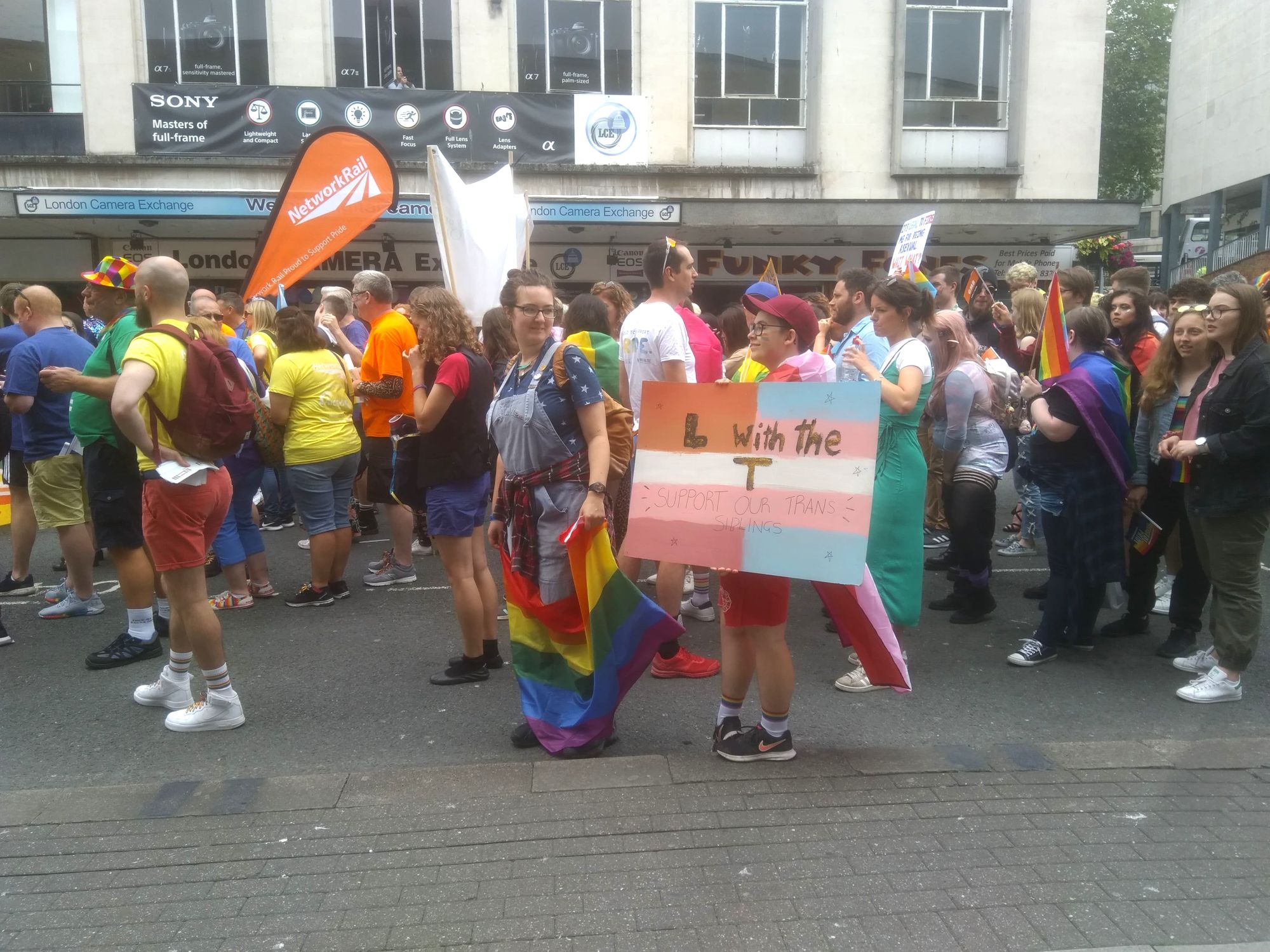
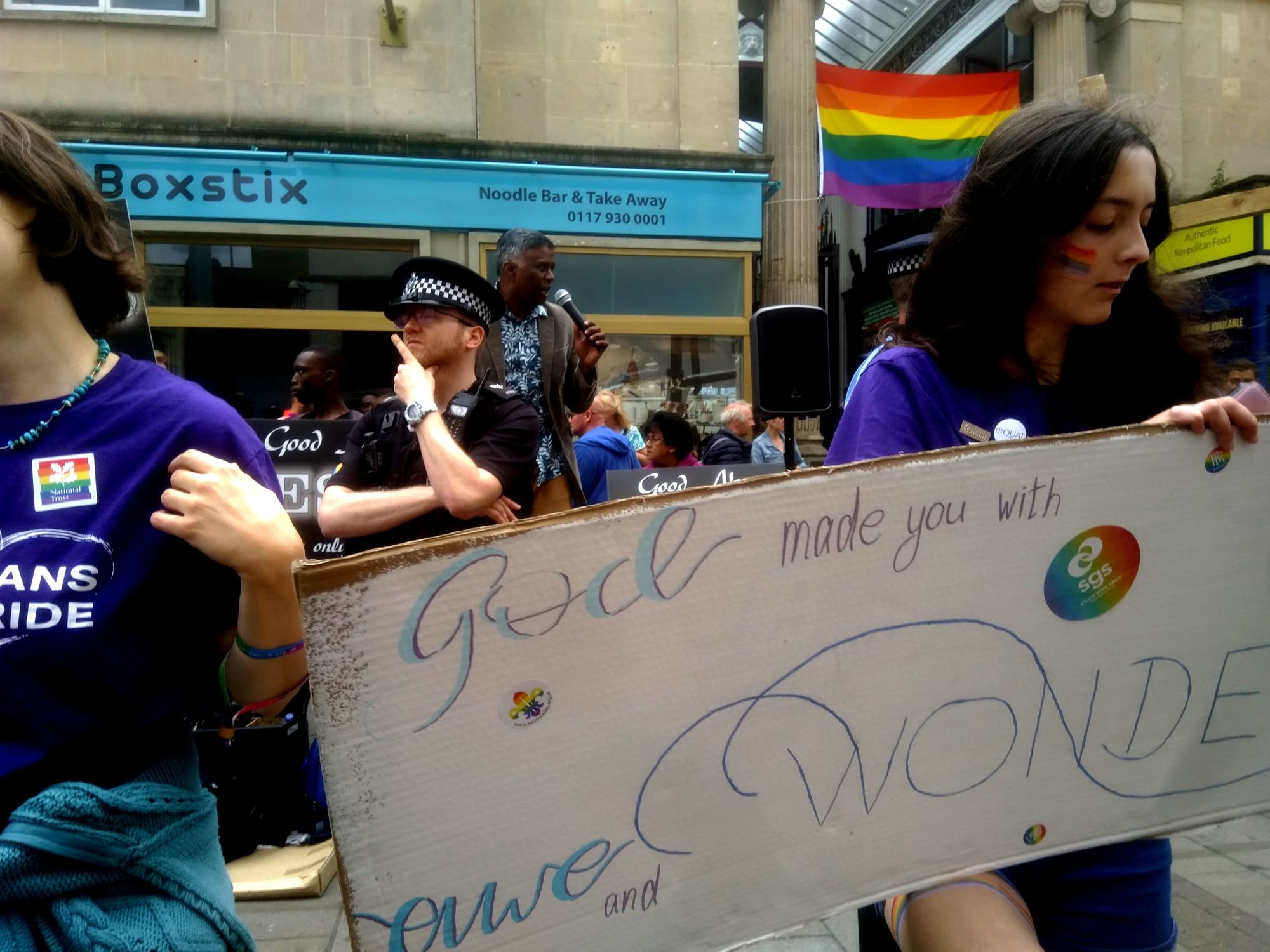
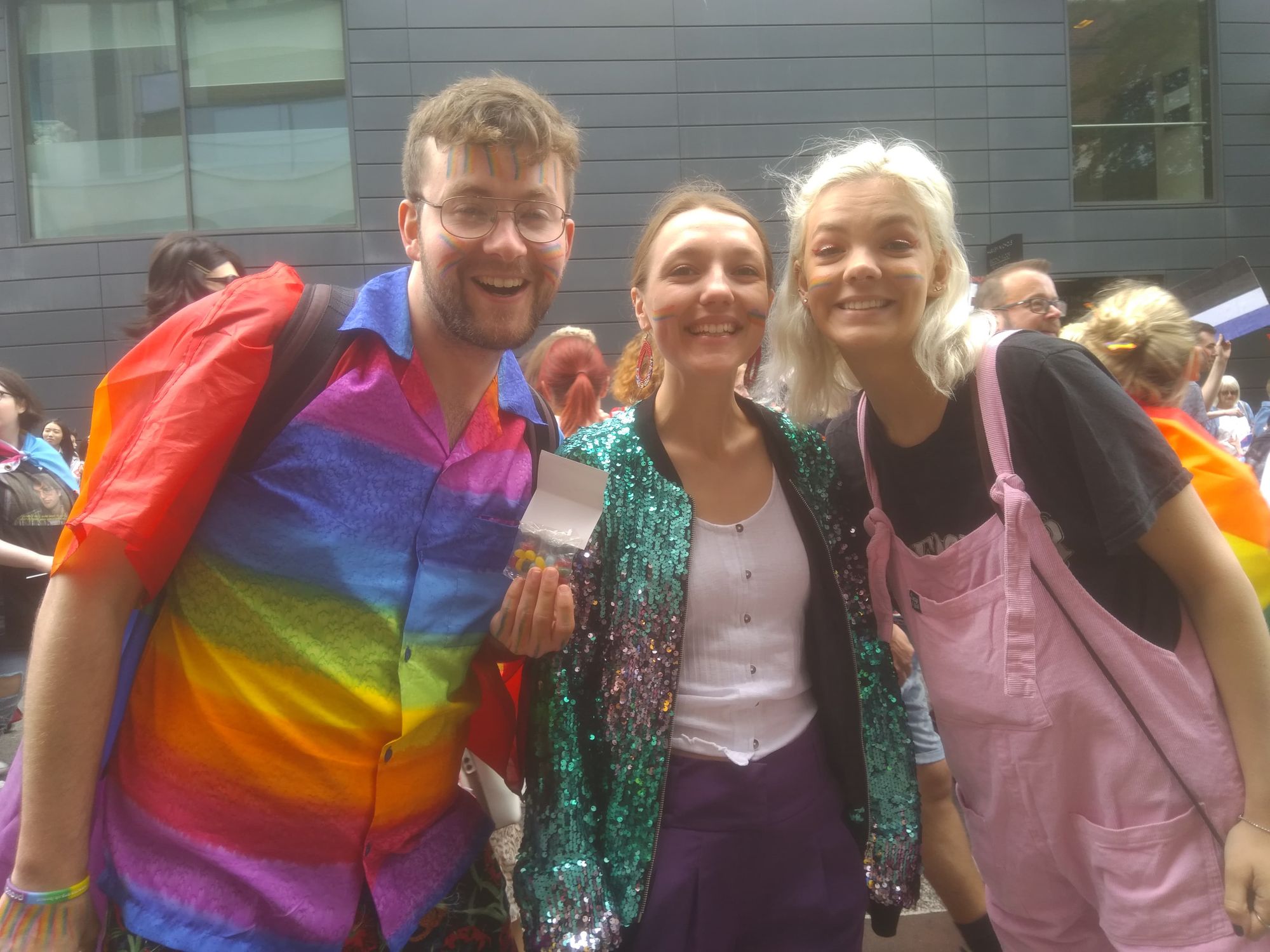
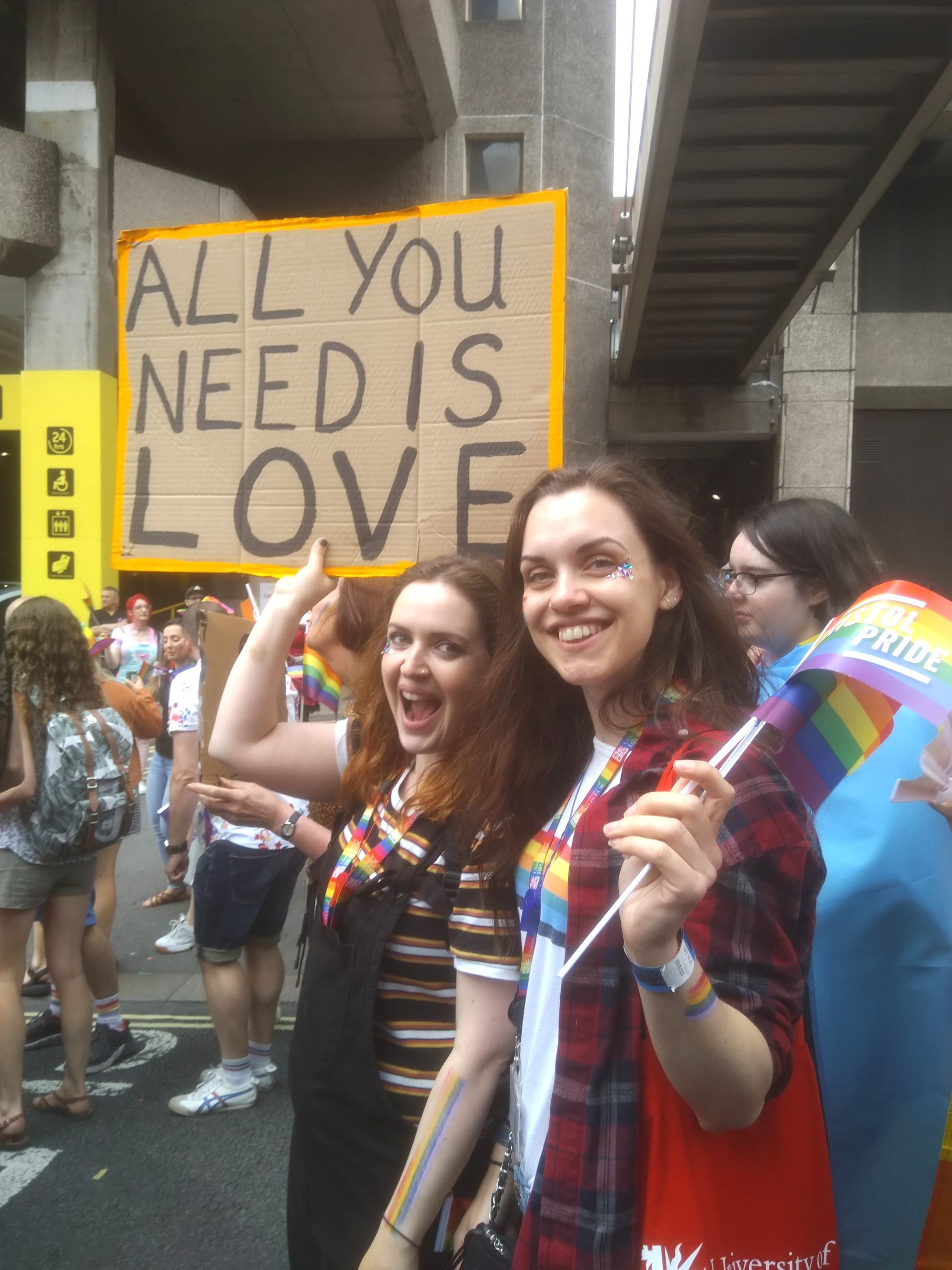
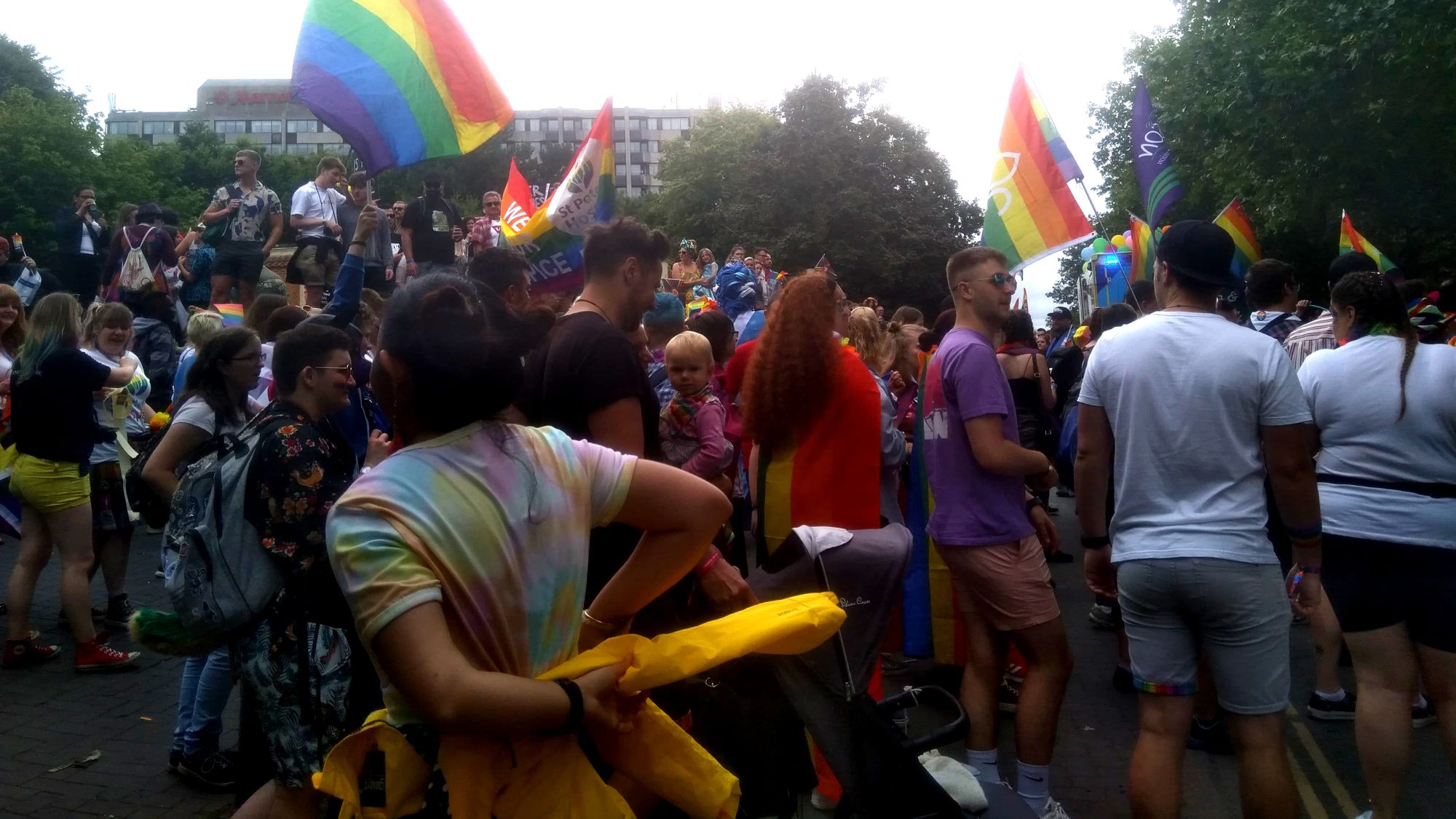
Featured Image Credit: Epigram / Ellie Brown
Did you join the Bristol Pride celebrations this year?

